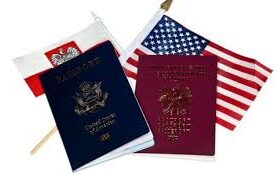Court Rules Green Card Wealth Test Can Be Enforced in Most States

Implementation of the controversial green card and immigrant visa wealth test was limited by a federal appellate court order on August 12, 2020. This allows the Trump administration to continue a wealth test policy in all states except New York, Connecticut, and Vermont. These three states had sued the Trump administration over the public charge rule.
Last month, a federal judge in New York ruled that the “public charge” test was hindering nationwide efforts to contain the coronavirus by discouraging immigrants from seeking public assistance, including medical treatment, during the pandemic. The United States Second Circuit Court, in a one-paragraph order, limited this order by permitting the implementation of the rule nationwide except for New York, Connecticut, and Vermont. The order came as a victory to the Trump administration. The public charge policy is seen as one of the most sweeping restrictions in immigration policies in recent times.
What is the Public Charge Rule?
The public charge rule gives the United States Department of Homeland Security (DHS) power to deny a green card application if the applicant is found to have relied on government assistance like health insurance, housing vouchers, or food stamps. Under the new rule, an immigrant officer could deem anyone whose income is less than 250% of the federal poverty level as a public charge. This means that a family of four whose income is less than $64,000 a year need not even apply. Elderly people or people with disabilities, who come from countries where English is not spoken, could be the most affected.
This rule was set for implementation in October 2019, but orders from the federal courts delayed its implementation. In April 2020, the Attorneys General in New York, Connecticut, and Vermont requested the Supreme Court for reconsideration of the public charge policy. These states’ primary concern was that the immigrants were the most affected by the pandemic. The states filed evidence from doctors, experts, and advocates showing that because immigrants feared they would jeopardize their immigration status, they did not seek public medical assistance even when that assistance was essential.
Green Card Wealth Test
Following this, the federal judge halted the policy’s implementation until the end of the pandemic. Judge Daniels ruled that for immigrants, it would be an “impossible choice between jeopardizing health and personal safety or their immigration status.” Judge Daniels also halted the public charge rule of the State Department. This applies to people abroad applying for immigrant visas, where the immigrant officers will analyze if the applying immigrants would possibly be a public charge. This analysis is made on the basis of age, income potential, wealth, health, and other factors.
The spokesperson of United States Citizenship and Immigration Services said that the agency is determining the administrative viability of re-implementing the public charge rule. To learn more about this blog post or if you have any other immigration concerns, please feel free to contact me at rglahoud@norris-law.com or (484) 544-0022.



